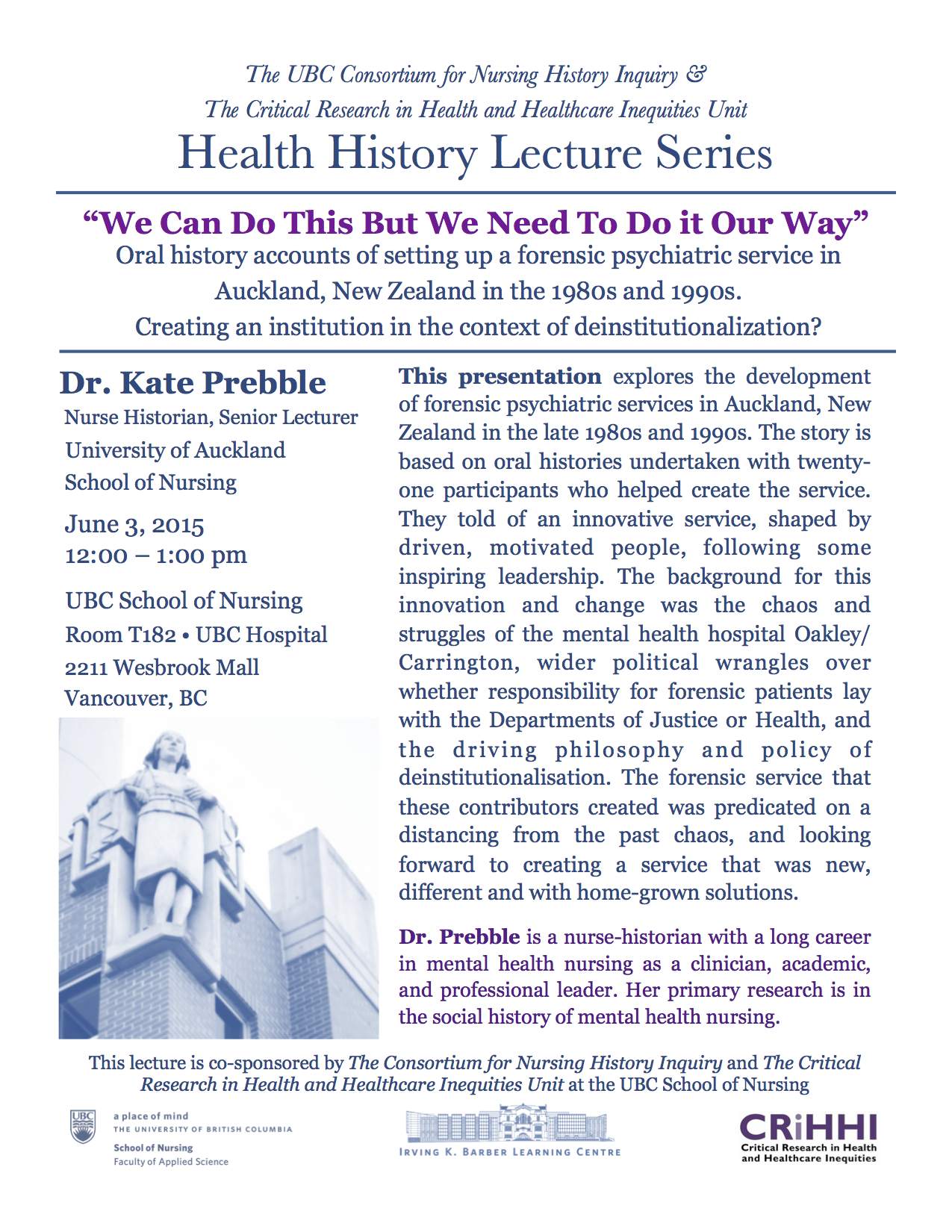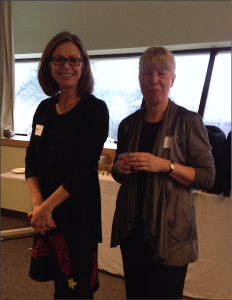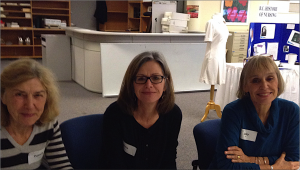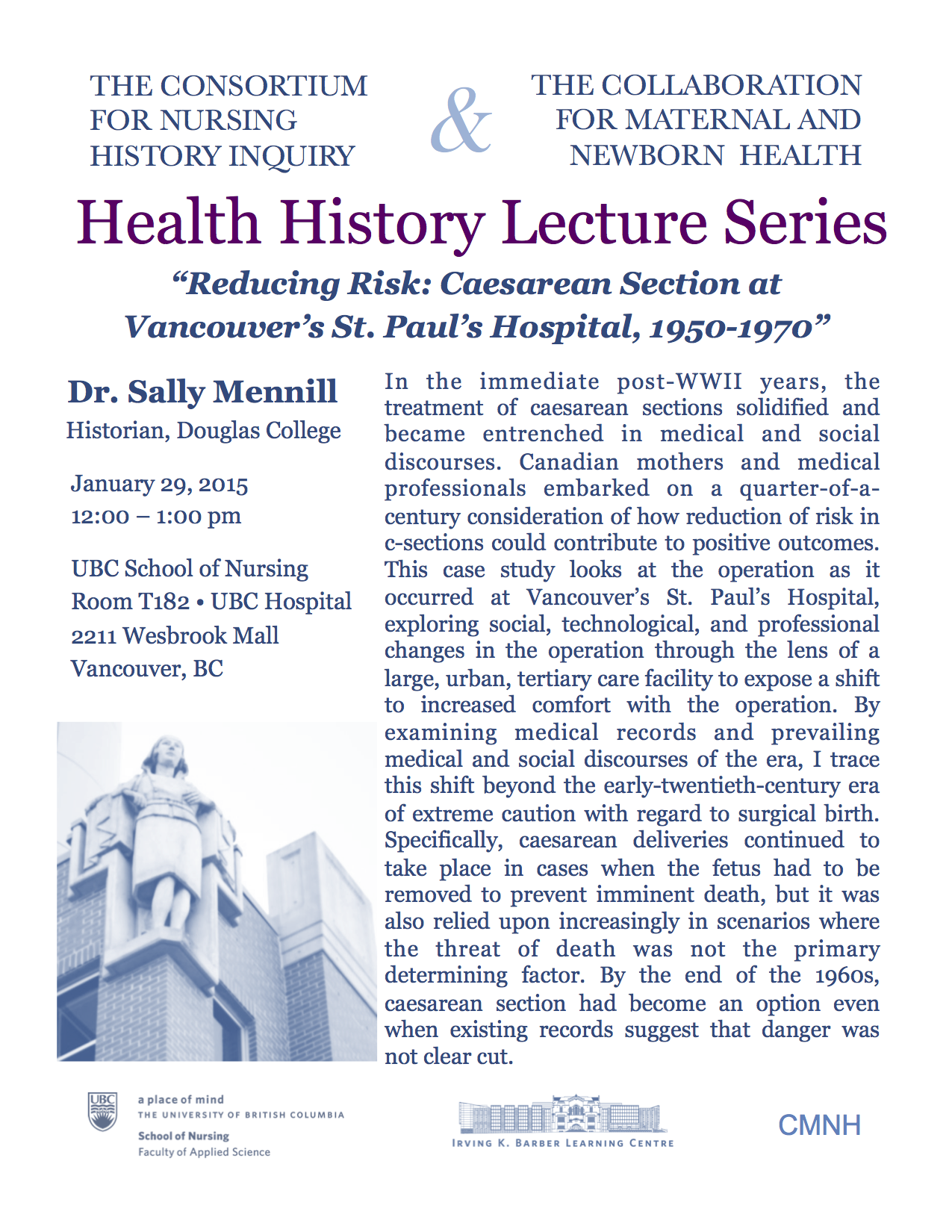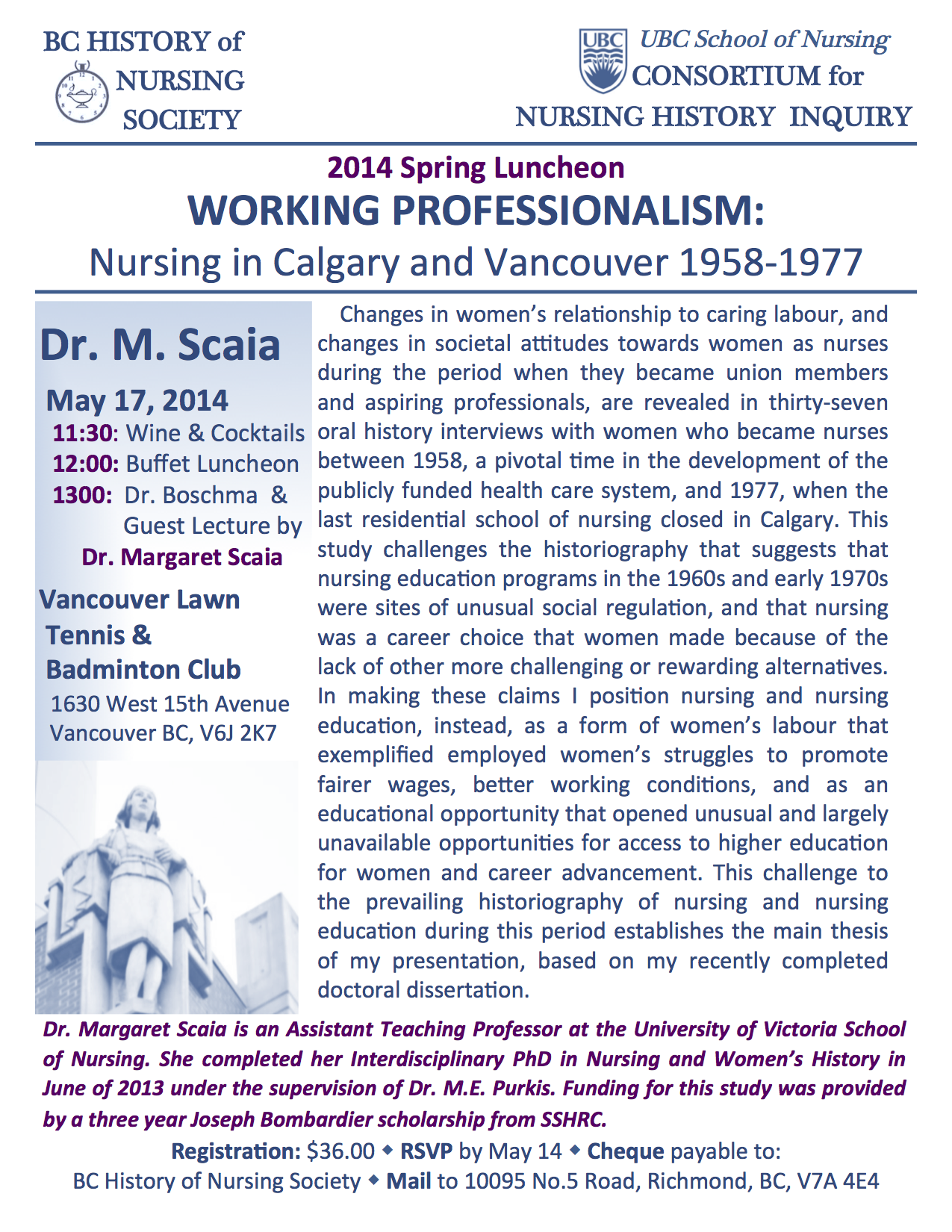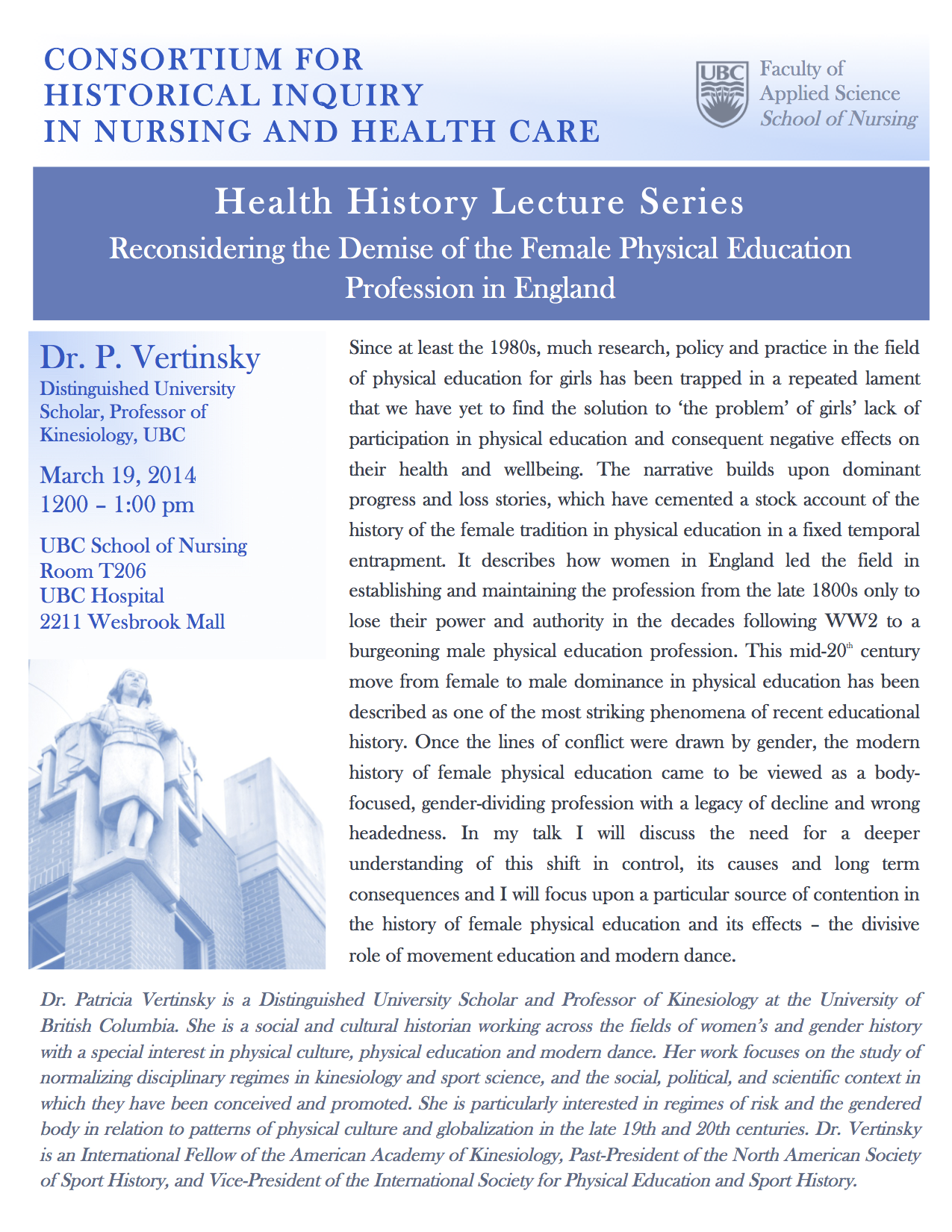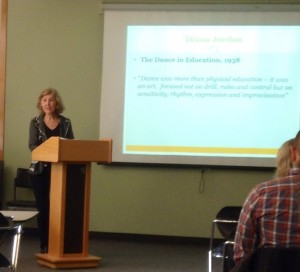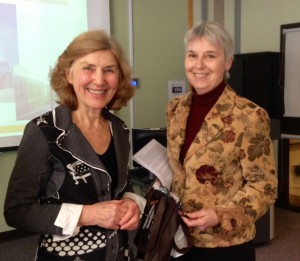Learning Across Borders: Nursing Education, Practice, and Transnational Migration in the Long-20th Century
Dr. Kathryn McPherson, Associate Professor in Gender, Feminist, and Women’s History at York University and author of the seminal text, Bedside Matters: The Transformation of Canadian Nursing, 1900-1990 gave the keynote lecture. In her lecture, “Learning Across Borders: Nursing Education, Practice, and Transnational Migration in the Long 20th Century,” McPherson spoke to the way recent international scholarship in nursing history has helped us think more critically about the divisions within nursing education – how questions of nursing education have been caught up in larger political and cultural debates about skill, gender, nationalism, and religion.

Keynote Speaker Dr. Kathryn McPherson
Following the keynote, expert scholars in nursing education, Dr. Veronica Strong-Boag, Dr. Sally Thorne, and Assistant Professor Emerita Ethel Warbinek gave a response as a lead-in to discussion with the audience about the future, promise, and persistent challenges of nursing education and academic nursing programs.
Watch the Webcast
This webcast was sponsored by the Irving K. Barber Learning Centre. The event “Almost a 100: University Nursing Education for the Future” was hosted by the UBC School of Nursing Consortium for Nursing History Inquiry as part of the UBC Centennial celebration.


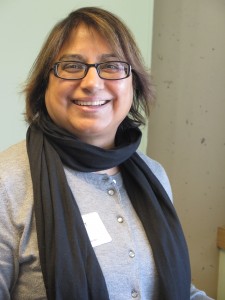
 Follow
Follow

